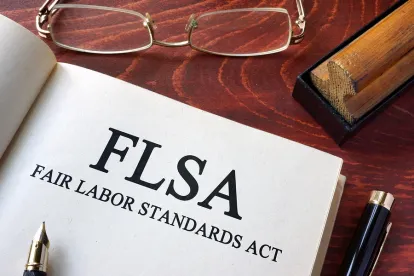Most employers know the Fair Labor Standards Act (“FLSA”) requires employees to be paid time-and-one-half for all hours worked over 40 in a workweek unless an exemption applies. But what some employers don’t realize is, for the most-commonly-used overtime exemptions to apply, employees must not only satisfy various “duties” tests, but they must also be paid on a “salary basis” at not less than $684 per week. Payment on a salary basis means an employee regularly receives a predetermined amount of compensation each pay period on a weekly, or less frequent, basis.
Clearly, paying employees on an hourly basis does not satisfy the salary basis test. But what about paying employees a day-rate? Although it is common in various industries to pay certain employees a day-rate for their work (oil and gas, we’re talking to you!), employers have increasingly been forced to defend FLSA collective action lawsuits brought by employees paid on a day-rate basis without receiving overtime pay for hours over 40 in a workweek. It is not illegal to pay employees a day-rate, but if paying employees a day-rate does not satisfy the salary basis test, then employees may be misclassified as exempt from the FLSA’s overtime requirements, exposing employers to costly litigation.
In recent years, the Fifth Circuit Court of Appeals has been presented with various FLSA overtime cases regarding the day-rate/salary basis issue. Most notably, in Hewitt v. Helix Energy Sols. Grp., Inc., a class of offshore tool pushers sued their employer claiming they were paid a day-rate and did not receive overtime pay. Hewitt, 956 F.3d 341 (5th Cir. 2020). The employer argued that the tool pushers were exempt from the overtime requirements of the FLSA via their duties, and that the day-rate payment method satisfied the salary basis test, so the employees were properly classified as “exempt.”
In April 2020, the Fifth Circuit released its first opinion in Hewitt, finding that a day-rate cannot satisfy the salary basis test because employees only know after they work how much they are going to get paid – i.e., the pay is not a “predetermined” amount. However, in December 2020, the Fifth Circuit withdrew the first Hewitt opinion and superseded it with a new opinion. Hewitt v. Helix Energy Sols. Grp., Inc., 983 F.3d 789 (5th Cir. 2020). In the second opinion, the Fifth Circuit reasoned that a day-rate can satisfy the salary basis test if (1) the employee is guaranteed at least $684 per week, no matter the number of hours or days worked; and (2) a reasonable relationship exists between the guaranteed amount and the actual amount earned in the workweek.
On March 9, 2021, a majority of the Fifth Circuit voted to rehear, en banc, oral arguments from the Hewitt parties, and vacated the December 2020 opinion. Hewitt v. Helix Energy Sols. Grp., Inc., 989 F.3d 418 (5th Cir. 2021). Those oral arguments are set to be heard on May 25, 2021, and should give employers—at least in the Fifth Circuit—further guidance with respect to whether a day-rate can satisfy the FLSA’s salary basis test. Considering the current administration’s employee-friendly stance on various issues, employers will no doubt welcome the opportunity to classify a wider range of employees as exempt from the overtime provisions of the FLSA. And regardless of how the Court rules, employers will at the very least have a better idea of whether they are classifying employees properly with respect to the FLSA.





 />i
/>i
